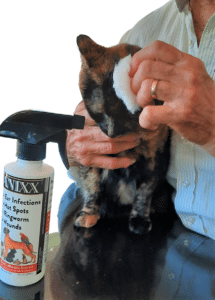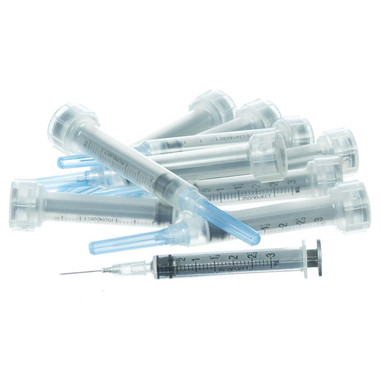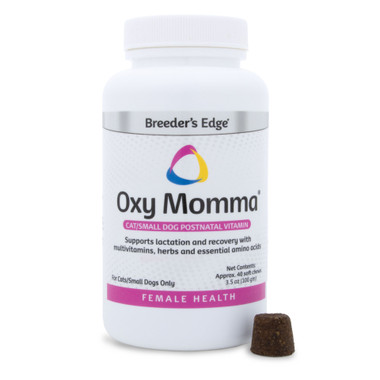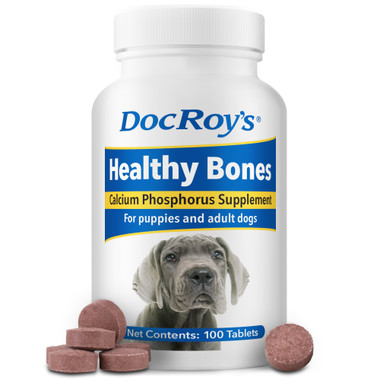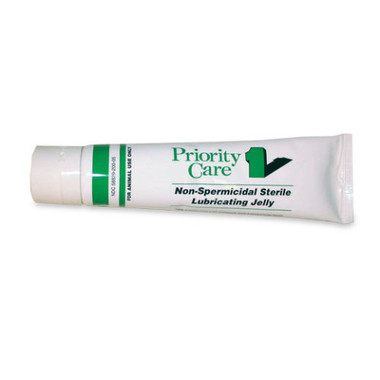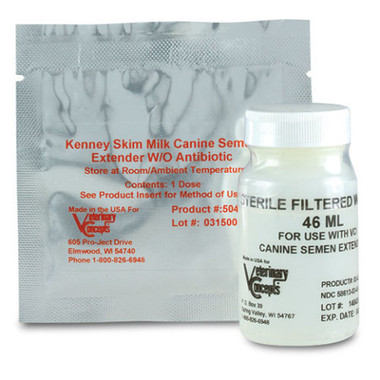My Cat Smells like Death
Estimated 0 min read

Cat’s breath smell like death…. what’s going on?
Cats are renowned for their cleanliness, but sometimes our feline friends can surprise us with odors that are far from fresh. These unexpected smells aren’t just unpleasant – they can be important indicators of your cat’s health. From dental issues to systemic illnesses, a range of conditions can cause your cat to smell less than stellar. Understanding these odors, their potential causes, and when they signal a need for immediate veterinary care is crucial for every cat owner. By learning to decipher these olfactory clues, you’ll be better equipped to maintain your cat’s health and catch potential problems before they become serious.
What to Know if Your Cat Smells Like Death
- Severe cat odors can indicate serious health issues ranging from dental disease to kidney failure, requiring prompt veterinary attention
- Sudden onset of strong odors, especially when accompanied by behavioral changes or other symptoms, often signals a medical emergency
- Regular vet check-ups, proper nutrition, and early intervention for minor health issues are key strategies in preventing severe odor-causing conditions in cats
Reasons Why Your Cat Smells
When your feline friend starts emitting an odor that could wake the dead, it’s time to pay attention. While cats are generally known for their cleanliness, certain health issues can lead to some seriously unpleasant aromas. Let’s dive into the malodorous world of severe cat odors and uncover the science behind these stinky situations.
Cat Dental Disease
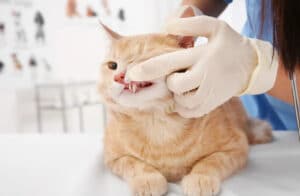
Vet checking cat’s teeth
Advanced dental disease is a common culprit when it comes to foul feline breath. As plaque and tartar accumulate on your cat’s teeth, bacteria thrive, producing volatile sulfur compounds. This results in that unmistakable “rotting” smell. Oral tumors can also contribute to death-like odors by trapping food particles and harboring bacteria.
In some cases, that deathly breath might actually be coming from your cat’s kidneys. Advanced kidney disease can cause a buildup of waste products in the bloodstream, including urea. As this compound breaks down, it produces ammonia, which can be exhaled through the lungs.
Cat Skin Issues and Infections
Severe skin infections can turn your cat’s coat into a source of eye-watering stench. These infections, often caused by bacteria or fungi, can lead to the breakdown of skin cells and the production of foul-smelling compounds. Abscesses, those painful pockets of pus, are another potential source of deathly odors. When an abscess ruptures, it releases a malodorous mixture of bacteria.
Cancer, in its various forms, can also lead to strong, unpleasant odors. As tumors grow and potentially ulcerate, they can become infected or lead to the death of surrounding tissues, releasing a variety of malodorous compounds.
Anal Gland Issues in Cats

It could be anal gland issues
Anal gland issues can quickly turn your cat’s rear end into a source of eye-watering odors. When these small sacs become impacted or infected, they can produce an overwhelming fishy or rotting smell. Severe diarrhea is another potential cause of death-like smells from your cat’s hindquarters. The resulting loose stools can have a particularly foul odor.
Perianal fistulas, while rare in cats, can produce an incredibly unpleasant odor when they do occur. These painful, tunnel-like sores around the anus can become infected, leading to discharge and a strong, putrid smell.
Internal Organ Issues in Cats
Kidney failure can lead to a buildup of toxins in your cat’s body, including urea and other waste products. As these compounds accumulate in the bloodstream, they can cause changes in your cat’s breath, urine, and even skin odor, often resulting in a strong, ammonia-like smell.
Liver disease can also contribute to overall body odor in cats. When the liver isn’t functioning properly, various compounds can build up in the bloodstream, leading to changes in your cat’s breath odor, often described as musty or sweet.
Diabetes complications, particularly diabetic ketoacidosis, can produce a distinct odor. When a diabetic cat’s body starts breaking down fat for energy instead of glucose, it produces ketones, giving your cat’s breath a sweet or fruity smell, often likened to nail polish remover.
As we’ve seen, there are numerous potential sources for severe odors in cats, each with its own underlying biological processes. Recognizing these odors early can be crucial in identifying and addressing potentially serious health issues in your feline companion.
How to Identify the Source of Your Cat’s Odor
When your feline friend starts smelling less than fresh, it’s time to put on your detective hat and get to the bottom of the stink. Identifying the source of your cat’s odor isn’t just about saving your nose – it’s a crucial step in ensuring your pet’s health and well-being. Let’s explore how to pinpoint the origin of that unpleasant aroma and what it might mean for your cat’s health.
Physical Examination
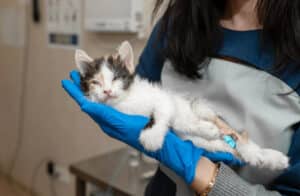
Cat getting checked at vet
A comprehensive examination is your first step in tackling your cat’s odor issues. Start by gently running your hands through your cat’s fur, feeling for any lumps, bumps, or areas of heat that might indicate an infection or abscess. Pay attention to your cat’s reaction – if they flinch when you touch a certain area, it could be a clue.
Next, check your cat’s mouth for signs of dental disease, such as red, swollen gums, tartar buildup, or loose teeth. Examine the ears for a yeasty or musty smell that could indicate an infection or mites. Finally, inspect your cat’s rear end for any signs of discharge, matted fur, or irritation around the anus.
Common Signs Accompanying Severe Odors
Foul odors often come with other symptoms.
If the smell is from your cat’s mouth, you might notice face pawing, excessive drooling, or decreased appetite.
For skin odors, watch for scratching, hair loss, or visible sores. Rear-end odors might be accompanied by litter box discomfort or changes in stool consistency.
Systemic illnesses can cause odors along with symptoms like increased thirst, weight loss, lethargy, or jaundice. These could indicate kidney disease, diabetes, or liver issues.
When to Suspect a Life-Threatening Condition
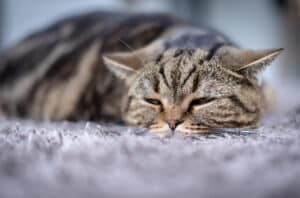
Lethargic cat
Some odors can signal a serious emergency. A sudden onset of a strong, foul odor, especially with other worrying symptoms, should raise alarm. For instance, a strong, sweet breath odor with lethargy, vomiting, or rapid breathing could indicate diabetic ketoacidosis. A urine-like mouth odor with vomiting and loss of appetite might signal advanced kidney failure.
Abscesses can quickly become dangerous if untreated. A sudden, putrid smell with a painful, swollen area, especially if your cat seems lethargic or feverish, requires immediate vet attention.
Any foul odor accompanied by difficulty breathing, extreme lethargy, collapse, or severe pain should be treated as a medical emergency. These symptoms could indicate serious conditions from severe infections to organ failure.
Remember, you’re your cat’s health advocate. Stay vigilant and respond promptly to unusual odors and symptoms. When in doubt, consult with a veterinary professional.
When Your Cat’s Odor Demands Urgent Veterinary Attention
In the world of feline health, time can be of the essence. While some odors might just be a sign that it’s bath time, others can be alarm bells signaling a medical emergency. Knowing when to rush your furry friend to the vet could mean the difference between life and nine lives. Let’s dive deep into the malodorous world of urgent cat care and explore the signs that should have you speeding to the animal hospital faster than your cat can say “meow.”
The Signs of Severe Illness

Skinny cat
A sudden, overwhelming odor can be your first clue that something is seriously amiss in your feline friend’s health. Watch for accompanying symptoms like difficulty breathing, which might manifest as panting, open-mouth breathing, or wheezing sounds. Extreme lethargy, where your cat is unable to lift their head or respond to favorite treats, is another red flag.
Drastic changes in eating and drinking habits should also raise concern. Keep an eye out for yellowing of the eyes (jaundice) with a musty odor, or sunken eyes with a strong, urine-like smell. Don’t ignore temperature changes either – a cold nose and extremities or a high fever can indicate serious issues.
Rapid Onset of Strong Odors
The speed of onset can be just as important as the smell itself.
A sudden, overwhelming stench is often a four-alarm emergency. A sweet, fruity smell might indicate diabetic ketoacidosis, while a putrid, rotting smell could signal a ruptured abscess. A strong ammonia-like odor might point to acute kidney failure, and a sudden, strong fecal odor could mean an intestinal blockage or rupture.
Remember, if your cat goes from normal-smelling to death-like in a short period, don’t wait to seek help.
Behavioral Red Flags
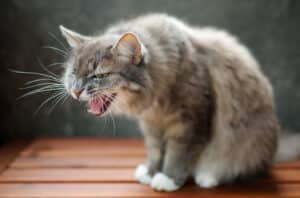
Cat acting aggressive
Your cat’s behavior can provide crucial context to that worrying smell. Sudden aggression in a normally friendly cat or a typically independent cat becoming clingy and vocal are causes for concern. Pay attention to changes in litter box behavior, especially straining to urinate. Alterations in gait, mobility, or grooming habits can also indicate serious issues when combined with strong odors.
In the complex world of feline health, odors and behaviors are your cat’s way of communicating. When these signals align to spell trouble, it’s crucial to act fast. Trust your instincts, use your senses, and when in doubt, don’t hesitate to seek professional veterinary care. Your quick action could be the key to keeping your furry friend purring for years to come.
How to Prevent Deathly Cat Odors
Just as an ounce of prevention is worth a pound of cure, a pinch of proactive care can save you from a ton of troublesome odors. Let’s dive into the world of feline wellness and explore how you can keep your cat smelling as fresh as a daisy (or at least, as fresh as a healthy cat should).
Regular Vet Visits
Think of your veterinarian as your cat’s personal health detective. Regular check-ups are like routine investigations, searching for clues of potential health issues before they become full-blown, odor-producing problems.
During these check-ups, your vet will conduct a comprehensive physical examination. They’ll check for dental disease, skin abnormalities, and feel for any unusual masses or organ enlargements. Regular blood work can reveal hidden health issues long before they manifest as odors or other visible symptoms.
Don’t forget about vaccinations either. Keeping your cat up-to-date on their shots protects them from diseases that could lead to odor-producing complications.
Nutrition and Hydration For Cat Odor Prevention
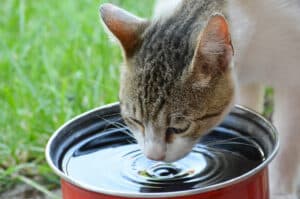
Cat staying hydrated
You are what you eat, and so is your cat. Proper nutrition plays a crucial role in maintaining your cat’s overall health and keeping nasty odors at bay. A balanced diet can help prevent issues that could lead to unpleasant smells.
High-quality protein sources can maintain healthy skin and coat, reducing the risk of smelly skin infections. Adequate fiber promotes good digestive health, preventing issues like constipation or diarrhea that could result in rear-end odors.
Some cat foods are specially formulated to help reduce tartar buildup, which can prevent dental disease and bad breath. Dental treats can also be useful in mechanically cleaning the teeth.
Hydration is equally crucial. Adequate water intake helps flush toxins, supports kidney function, and can help prevent urinary tract issues. Consider a pet fountain or incorporate wet food into their diet to increase fluid intake.
Early Intervention for Minor Health Issues
Small problems have a nasty habit of snowballing into big, smelly issues if left unchecked. That’s why early intervention is key in preventing those death-like odors from ever developing.
Keep a close eye on your cat’s litter box habits. A slight change in stool consistency or urine output could be the first sign of a developing problem. Pay attention to your cat’s grooming habits too. Overgrooming could indicate skin irritation or allergies that could lead to smelly infections if untreated.
Don’t ignore minor mouth odors. That slight whiff of fishy breath could be the early stages of dental disease. Addressing it promptly can prevent severe periodontal disease and its associated rotting smell.
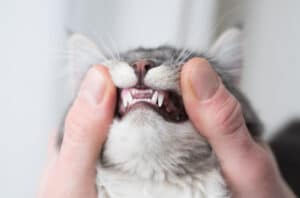
Monitor cat’s teeth regularly
Even regularly checking your outdoor cat for small wounds can make a big difference. Cleaning and treating minor cuts or scratches can prevent smelly abscesses.
Remember, cats are masters at hiding discomfort, so any change in behavior could be significant. By staying vigilant and addressing minor health issues early, you’re not just preventing unpleasant odors – you’re potentially saving your cat from more serious health complications. It’s a win-win situation: your cat stays healthier, and your nose stays happier.
By staying vigilant and addressing minor health issues early, you’re not just preventing unpleasant odors – you’re potentially saving your cat from more serious health complications down the line. It’s a win-win situation: your cat stays healthier, and your nose stays happier.
In the end, preventing those deathly cat odors is about more than just keeping your home smelling fresh. It’s about providing comprehensive, proactive care that supports your cat’s overall health and well-being. By combining regular vet check-ups, proper nutrition and hydration, and early intervention for minor issues, you’re setting the stage for a long, healthy, and wonderfully un-smelly life for your feline friend. Remember, a healthy cat is a happy cat, and a happy cat is much less likely to smell like anything other than, well, a cat.
Banixx for Cat Lovers
While we’ve explored the various causes and prevention strategies for those unpleasant feline odors, remember that every cat is unique. What works for one might not work for another. The key is to stay observant, act quickly when something seems off, and maintain open communication with your veterinarian. By being proactive and attentive to your cat’s health, you’re not just preventing bad smells – you’re ensuring a longer, happier life for your furry companion. At Banixx, we’re committed to supporting you in this endeavor. Our range ofpet care productsand wealth of educational resources are designed to help you tackle a variety of feline health issues. So, keep your nose tuned and your eyes peeled, and don’t hesitate to explore more of our feline health tips to keep your cat purring contentedly for years to come.
For sure, we know by now that you care a lot about your cat’s health – otherwise you wouldn’t be reading this blog! That’s why we hope you’ll come back to ourblogto learn more about how to keep your purr-fect, furball friend happy and healthy. If, on the other hand, you are interested inhow to treat cat hot spots, or how totreat your cat’s ear infection, we cover that too. Or are you interested in more quirky items? such as whydoes my cat get hairballs, or what’s with theundeniable magic of Catnip?we’ve got those too!
Sources
https://www.petmd.com/cat/general-health/causes-bad-odors-cats
https://vetster.com/en/symptoms/cat/foul-odor#:~:text=Generalized%20malodor%2C%20emanating%20from%20every,%2C%20abscesses%2C%20and%20certain%20infections.
https://www.thesprucepets.com/why-does-my-cat-stink-5071501
catster.com/cat-health-care/why-does-my-cat-smell-bad/
sunvetanimalwellness.com/2019/09/smelly-cat-ashevilles-holistic-vet-reveals-common-causes-of-feline-odor/



